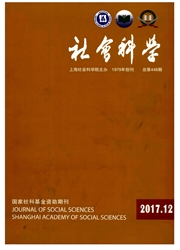

 中文摘要:
中文摘要:
具身认知强调了身体的物理结构和感觉运动系统的经验对心智的塑造作用。它挑战传统认知心理学无身认知的观点,认为认知依赖于身体,扎根于环境。认知、身体和世界构成了有机的整体。镜像神经元的发现为心智具身性提供了神经生物学的证据。镜像神经元在动作执行和动作观察时皆被激活的事实表明,所谓内部心理过程可能就是身体动作经验的心理模拟过程。认知既不是抽象符号的加工,也离不开身体。心智和身体并非独立的二元,我们通过身体认识世界,身体构造和身体经验决定了认知的形式和内容。在这个意义上,我们说身体与心智是一体的。
 英文摘要:
英文摘要:
Embodied cognition(EC) emphasizes the role of the bodily physical structures and the experiences of sensory - motor systems on the shape the mind. EC challenges the view of disembodiment which regards the body and mind as separated realities. It suggests that cognitive processes have their origins in bodily states and ground in environment. Minds, bodies and the world form an integrated unit. The discovery of mirror neurons provides neural physiological evidences for EC. The fact that mirror neurons are activated during both action - performing and action - watching shows that the so - called internal mental processes may just be a mental simulation of the experiences from sensor - motor systems. Cognition is not manipulation of abstract symbols and can not be disembodied, either. Bodies and minds are not independent realities. We know and understand the world by our body. Our bodily struc- ture and physical experiences have a strong influence on our cognitive forms and contents. In this sense, we say that mind is embodied.
 同期刊论文项目
同期刊论文项目
 同项目期刊论文
同项目期刊论文
 期刊信息
期刊信息
